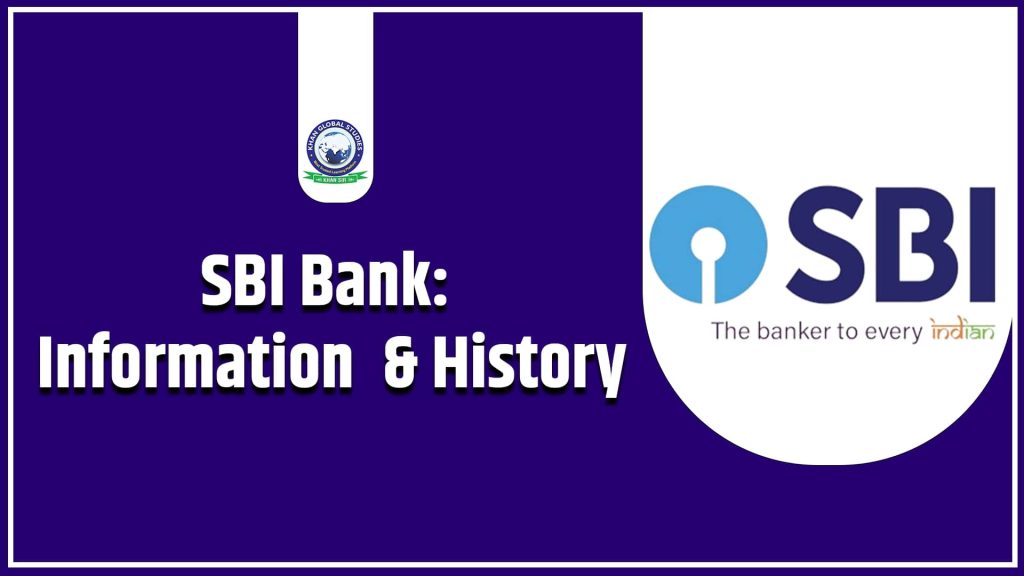
The full form of SBI is “State Bank of India”. It is the largest commercial bank in India, and its head office is in Mumbai city in the state of Maharashtra. It was the first Indian commercial bank established in 1806 under British colonial rule. This bank is the largest government-owned corporation in India and has a vast network of branches and ATMs across the country. Customers can avail a wide range of banking and financial services from SBI.
History of SBI Bank
State Bank of India (SBI) has a rich and varied history spanning more than two centuries. Established as the Bank of Calcutta in 1806, it grew through its merger with the Bank of Bombay (Estd. 1840) and the Bank of Madras (Estd. 1843) in 1921, creating the Imperial Bank of India. In 1955, with nationalization, the State Bank of India was born, becoming the largest commercial bank in the country. Over the years, SBI has played a vital role in India’s economic growth by continuously providing financial stability and services to millions of people while keeping pace with the changing times. Today, its history stands as a testament to its resilience, growth and service to the nation.
Expansion and Merger
SBI has been expanding its operations and services in India and abroad. In 2008, SBI merged with its five associate banks, State Bank of Bikaner and Jaipur (Estd. 1963), State Bank of Hyderabad (Estd. 1941), State Bank of Indore (Estd. 1920), State Bank of Mysore (Estd. 1913) and State Bank of Patiala (Estd. 1917). This merger helped SBI to become India’s largest bank in terms of branch network, deposit base and number of customers. SBI is also increasing its presence abroad by opening branches in different countries. At present, SBI has more than 200 branches and representative offices in 32 countries.
Services provided by SBI Bank
State Bank of India (SBI) offers a wide range of financial services to meet the diverse needs of its customers. Some of the major services provided by SBI include:
- Banking Services: SBI offers traditional banking services, including savings and current accounts, fixed deposits and recurring deposit accounts. It provides a secure platform for customers to manage their finances.
- Loan and Credit Facilities: SBI extends various loan products like home loans, car loans, personal loans and educational loans. These loans come with competitive interest rates and flexible repayment options.
- Investments and Wealth Management: SBI offers investment services including mutual funds, fixed deposits and recurring deposit schemes. Additionally, it provides wealth management services to help clients plan and grow their investments.
- Online and Mobile Banking: SBI’s digital platforms enable customers to conduct banking transactions seamlessly. Online and mobile banking services allow users to check account balances, transfer funds, pay bills, and access a range of other banking services from the convenience of their devices.
- Credit and Debit Cards: SBI issues credit and debit cards with various features and benefits. These cards can be used for transactions globally, providing customers with convenient and secure payment options.
- Government Banking: As a public sector bank, SBI plays an important role in government banking. It handles various financial functions for the government, including pension distribution and collection of taxes.
- International Banking: SBI provides a set of international banking services to NRIs (Non-Resident Indians) including foreign exchange services, remittances and assistance.
- Insurance Products: SBI offers many insurance products including life insurance, health insurance and general insurance. These products provide financial security and protection to customers.
- Corporate Banking: SBI caters to the banking needs of corporate customers, providing services such as corporate loans, working capital finance and treasury services.
- Small and Medium Enterprises (SME) Banking: SBI supports small and medium-sized enterprises with customized banking solutions including loans, working capital and advisory services.
These services collectively position SBI as a versatile and customer-centric financial institution, serving individuals, businesses and the broader community.
SBI Bank’s Commitment towards Social Causes
SBI Bank is committed to serving the nation and making a positive impact on the lives of people. The bank has been involved in many social causes and has supported many programs that help the less fortunate. SBI is helping in projects in the areas of education, health and employment generation intending to improve the lives of the people of India.



